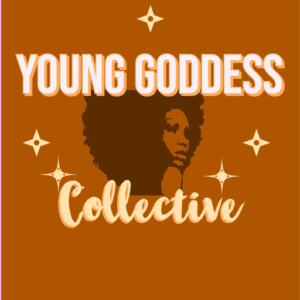
Research Teams

AAPF’S MOST WANTED
Kasayah Alexis, Haley Taylor-Schiltz, Kimberly McKoy
As a Black woman who has grown up in a predominantly white community and school district, we know how it feels to feel out of place. Within the African American community, you can see the hurt, isolation, and a rise in mental illness for those who experienced racial trauma. It is also crucial to acknowledge the negative impacts of one’s homebase (their neighborhood or homelife). Although all families in the neighborhood are affected by this change, we notice that Black girls and women are impacted differently on both dramatic and acute levels. All such factors can cause feelings of isolation. We suspect that younger Black women face trauma in these neighborhoods from the lack of security and support. In our education system, additionally, it is not only the classes that are an issue, the teachers can be an issue as well. The lack of diversity in our teacher workforce encourages microaggressions toward our young Black girls. Us young Black girls feel this aggression and therefore our communication wall goes up, meaning we are less apt to information. This means Black girls don’t do as well in school classes, which only causes schools to see us as the problem and as unable rather than the solution and our future world leaders. In order to change these inequalities, we have to know about the inequalities. We cannot fix a problem we can’t see. Research is useful, important, and exposing. It helps us identify problems so we can seek solutions and progress. It is important to identify problems, especially if they seem repetitive. We must ponder solutions in order to progress. The research we talk about above will greatly contribute to the research desert we are struggling with. Studies on the experiences of Black girls are necessary, yet they are absent.

SUPERNOVA
Mia Muoneke, Janiya Starr Gibens, Gabrielle Crooks
It is critical that we understand the power of shared experiences and education, while also acknowledging the diversity and complexity of Black womanhood. Research often strives to remove emotion, but emotion is truly how we translate our world so it must be included to fully grasp the experiences of black non-men. People learn differently, at different paces, and with different goals in mind; we must not crucify them for existing outside of our norm, but instead evolve to understand their learning process, through research, just as they may be forced to do so with what is seen as “normal.”
Our research, entitled “Supernova: How Black Girls Can Become Criminals,” centers around the ways in which social isolation and racial stress, along with teachers and social pressures, can lead some to risky behaviours that can land them in jail or prison. Our research team wanted to know the specifics of experiencing social isolation in order to better understand the mindsets of young black girls during these times. We conducted one-on-one interviews with black girls under the age of 18, delving into their experiences as black girls with stress and mental illness. In order to properly dismantle the school-to-prison pipeline, we need to understand the triggers that can lead some girls down that path. These interviews are shedding light on those exact triggers and will continue to shed light on ways in which the education system can be made more beneficial for students of all races.

BOSS SCHOLARS
Junia Janvier, Carly McIntosh, Eryn McCallum
The title of our research project is “Black Women’s Social Burden and Stress Management.” In this research, we explored/are exploring the sources of emotional stress that Black women experience, especially relating to their identities as Black women, and methods Black women use to manage their stress (both personally and with the help of others). Our team wanted to know how Black women perceive their general life stress versus racism-related stress and how they keep their minds and spirits healthy. We have begun exploring these topics through conducting a focus group interview on Zoom with Black girls/women. This question was particularly important to us to explore during the time of COVID-19, which is disproportionately affecting Black and Brown people and also during this time of mass levels of Black Lives Matter protests and calls to action. We know that Black women bear the weight of much of what is going on, so we wanted to hold a space for them to open up and hopefully feel seen and heard.
Our research questions stem from our experiences of feeling silenced and sometimes invisible as Black women. We don’t have enough coverage in research in general and are constantly left out of studies, and we would like to take it upon ourselves to contribute to a more detailed and intersectional sector of the research world. A main priority for everyone, not just Black women, should be to gather and spread more information about intersectionality and Black feminism and to have it be done correctly. We cannot dismantle a system we do not understand. We will not fully understand it until we listen to the stories of Black women, Black queer siblings, and Black disabled folk. Thus, through such research we can craft complex narratives and history through those who have experienced their own realities. We think that simply sharing stories with someone who not only navigates the world the way we do, but also harbors their own unique perspective, where our paths dissect weaves a beautiful tapestry of the Black Woman experience.

THE YOUNG GODDESS COLLECTIVE
Kayla Bobb, Aniah Francis, Ebony Morris
Our research topic is “Black Spirituality and it’s Intersection to Mental Health”. The main overarching question we ask is “How do Black girls and women navigate the intersections of their mental health and spiritual life?”
As Black women who have had our individual experiences with spirituality and mental health that at times overlap with one another, we were curious about this intersection when it came to Black girls and women everywhere. We know that while we as individuals have these experiences, and people around us have similar experiences, there is still a knowledge desert when it comes to formal research on the experiences of Black girls and women.Not only is there a knowledge desert but the topics of spirituality and mental health can be taboo subjects in the Black community, leaving our girls to struggle without a strong spiritual foundation in addition to a lack of mental health resources.
There’s not much research on this topic in regards to Black girls’ discomfort with institutionalized religion since Western researchers do not value lived experience as evidence. Western researchers also do not examine non-Western religions, specifically religions and spiritual beliefs present across the Black diaspora, as valid or worthy of recognition and worship. Additionally, the single-lens that researchers use in evaluating based on gender or on race, but never on their intersection does not make space for research on Black girls. We would like to further understand one’s relationship to spirituality and if that has had an effect on their mental health; if it has, then have they looked to form a better connection with spirituality/religion or have they abandoned it.

